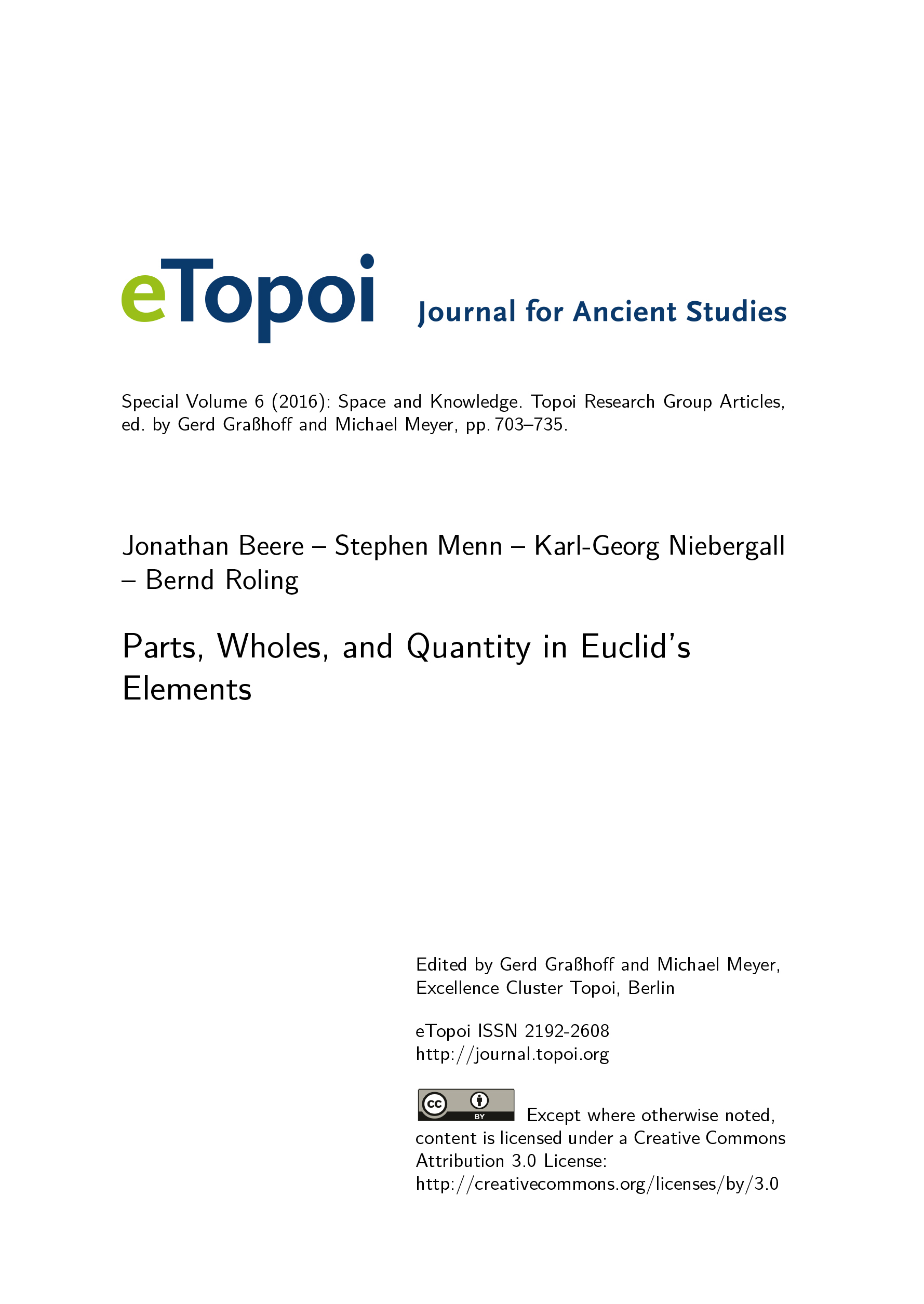Parts, Wholes, and Quantity in Euclid’s Elements
This paper of Topoi research group (D-3) Theoretical Concepts of Space develops a novel methodology, combining history of mathematics, philology, philosophy of mathematics, and logic. We develop a formal logical treatment of Euclid’s Elements, in which set theory plays no role, but the logic of part and whole does. We first consider a controversy about the nature of Euclid’s Elements Book II. For Euclid, the part-whole relation plays roles that are now played by arithmetic operations. This shows one crucial limitation of the controversial interpretation of this text as geometrical algebra. Returning to the beginning, we present a formal language for stating Propositions 1 through 10 (omitting 7) and proofs of them. Surprisingly, this has never been done (except for one recent approach, which differs from ours in an essential way). We conclude by sketching several significant ways in which this project can be further developed.
This paper of Topoi research group (D-3) Theoretical Concepts of Space develops a novel methodology, combining history of mathematics, philology, philosophy of mathematics, and logic. We develop a formal logical treatment of Euclid’s Elements, in which set theory plays no role, but the logic of part and whole does. We first consider a controversy about the nature of Euclid’s Elements Book II. For Euclid, the part-whole relation plays roles that are now played by arithmetic operations. This shows one crucial limitation of the controversial interpretation of this text as geometrical algebra. Returning to the beginning, we present a formal language for stating Propositions 1 through 10 (omitting 7) and proofs of them. Surprisingly, this has never been done (except for one recent approach, which differs from ours in an essential way). We conclude by sketching several significant ways in which this project can be further developed.

